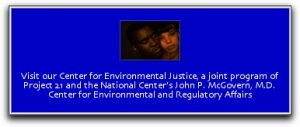01 Oct 2006 It’s All About Trust, by B.B. Robinson, Ph.D.
Why are black Americans so successful at creating, developing and operating religious institutions?
In part, it is because we have a long history in the church business. Churches also have roles and functions that permit almost everyone to find a niche. But the most important reason why blacks have successful churches may be that, given our inherent spirituality, we trust in God and in our relatives, neighbors, friends and colleagues when it is in a religious setting.
From time to time, we hear an unfortunate story about how a pastor disappears with his secretary and the building fund, but we generally have trust and confidence in our churches.
Trust, on a larger scale, is the key to most forms of success. Families are successful when husbands, wives and children trust each other. Neighborhoods are most successful when residents believe that their neighbors are going to promote positive outcomes such as maintaining their homes, contributing to neighborhood institutions and not permitting negative factors to infiltrate the neighborhood. A nation is successful when its citizens believe that those in charge have their best interests at heart and there are no glaring indications to the contrary.
When there is trust and confidence present, members of these social institutions can invest most of their energies in growing and expanding as opposed to protecting themselves from the sort of harm anticipated in an environment of distrust and fear.
What about the link between trust and economics? In a recent article in The Journal of Economic Perspectives, economics professors Luigi Guiso, Paola Sapienza and Luigi Zingales contend that trust has everything to do with economic success. Trusting and confident individuals are more likely to be entrepreneurs. These entrepreneurs believe customers will be honest and will compensate them for goods and services they produce. This often leads to economic success. The professors conclude that the greater the degree of trust in an economy, the faster that economy will grow.
Black Americans in particular should make efforts to learn and benefit from this thinking. We should do whatever it takes to build greater trust in our families and in our communities. We should use this increased level of trust to generate greater economic growth in our communities. If we want to truly benefit from America’s economic outcomes, we must also engender trust with other ethnic groups in the nation.
History may serve as a high and thick barrier to creating the type of beneficial trust between blacks and the broader community necessary to lead to our community enjoying the full benefits of America’s economic possibilities. We know, however, that the current economic disparity between ethnic groups in the nation is explained, to a significant degree, by the lack of trust between these groups. Greater trust could decrease this economic disparity.
How can we foster this trust and make it work to improve our economic outcomes? It’s simple: One individual at a time, one family at a time, one community at a time and one day at a time.
Once we begin to truly trust each other, we can fearlessly and confidently direct our energies to achieving our most productive and beneficial goals and thereby live lives that are satisfying.
# # #
B.B. Robinson, Ph.D. is a member of the national advisory council of the black leadership network Project 21. Comments may be sent to [email protected].
Published by The National Center for Public Policy Research. Reprints permitted provided source is credited. New Visions Commentaries reflect the views of their author, and not necessarily those of Project 21 or the National Center for Public Policy Research.




